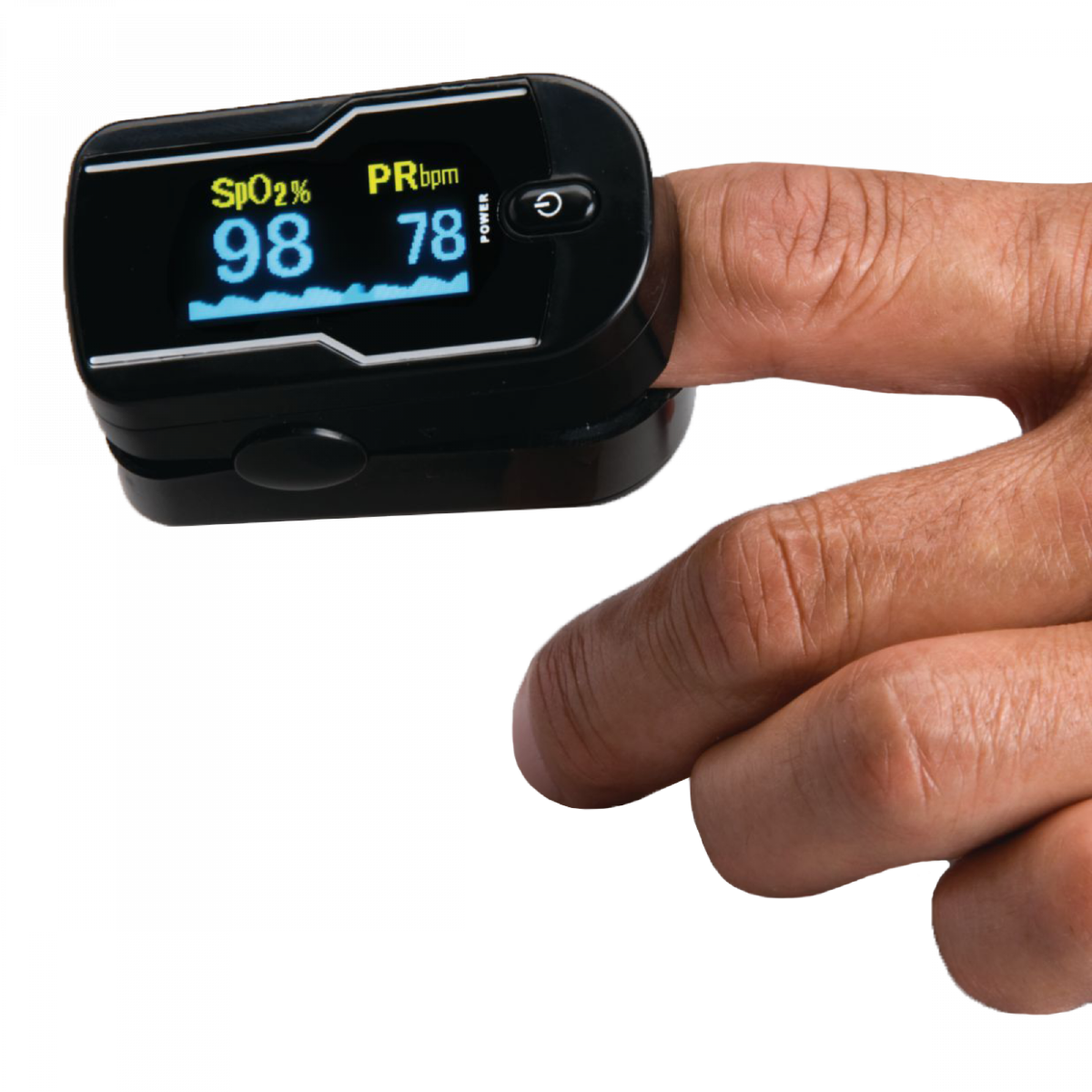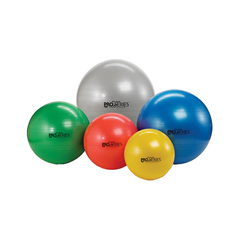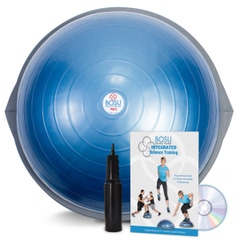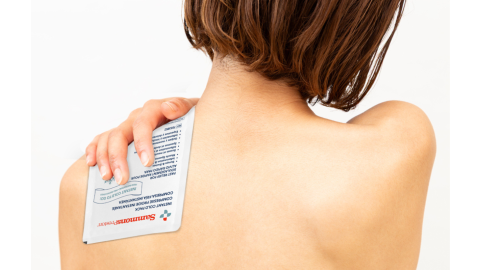There are a number of factors that affect our heart rate including our age, medical conditions, medications, diet, and more. Today, we’re even more aware of our heart rate thanks to devices such as smartwatches. Designed to measure every beat during rest and exercise, these wearable devices are great at providing you with heart rates. Be aware, however, that they’re not always accurate. If you’re getting abnormal readings, particularly if you have symptoms, you might want to check with your doctor.
So, how much do you know about your resting heart rate? And why does it matter?
- What You Need to Know
- Track Your Heart Rate
- Understanding the Effects on Your Health
- How Exercise Improves Heart Health
What You Need to Know
Your heart rate is the number of times your heart beats in one minute. Varying from person to person, knowing how to check your heart rate can help you set up an exercise program. Using common heart monitoring devices, many people are familiar with how fast their heart beats when they exercise. If you are healthy and fit, your heart will recover quickly after exercise and return to a lower rate. If you are out of shape, your heart rate will stay high for much longer.

It’s important to note that your heart rate is different from your blood pressure. Blood pressure measures how hard the blood is pushing against the walls of the arteries. Heart rate is central to the process of the heart circulating oxygen and pumping blood throughout the body. It is lower when you are at rest and increases when you exercise.
Track Your Heart Rate
Your heart rate measurement is a key insight into how your heart is functioning. But do you know what a normal resting heart rate is?
Resting Heart Rate: 60 to 100 beats per minute
This is when your heart rate (also called pulse) is slowest, and the heart is pumping the least amount of blood your body needs. For adults who are sitting or lying down, calm and relaxed, a resting heart rate is normally between 60 and 80 beats per minute.
Slow Heart Rate: slower than 60 beats per minute (bradycardia)
A slow heart rate often occurs during sleep, but it can also be a sign of disease such as:
- Heart attack or other heart disease
- High levels of potassium in the blood
- Underactive thyroid gland
Fast Heart Rate: faster than 100 beats per minute (tachycardia)
A fast heart rate often occurs when you are stressed or exercising, but it can also be a sign of disease such as:
- Asthma or difficulty breathing
- Overactive thyroid gland
- Low levels of potassium in the blood
- Cardiomyopathy (in which the pumping function of the heart is reduced), atrial fibrillation, or ventricular tachycardia
You can check your pulse at the wrist or on the neck. At the wrist, lightly press the index and middle fingers of one hand on the opposite wrist, just below the base of the thumb. At the neck, lightly press the side of the neck, just below your jawbone. Count the number of beats in 15 seconds and multiply by four to determine your heart rate. It is best to figure out your resting heart rate after you’ve had a good night’s sleep and while you’re still lying in bed.
Watch this video here to learn how to check your heart rate.
Understanding the Effects on Your Health
There are many factors to consider if your heart rate is suddenly increasing. It’s important to first think about your lifestyle habits.
- You aren’t drinking enough water. When you are dehydrated, your heart will beat faster. Even if you are relaxed, you might need to increase your fluid intake. Stay hydrated!
- You might be getting sick. A high heart rate can mean you are developing a fever. When your body temperature elevates, so does your heart rate. Check your temperature and make sure to get plenty of rest.
- You had a little too much caffeine. A large amount of caffeine can seriously increase your heart rate. Sleep deprivation can also affect your heart rate. Excessive fatigue can lead to decreased performance, moodiness, and overuse of stimulants such as caffeine.
- If you take medication, recording your heart rate daily and reporting the results to your doctor can help them learn whether your treatment is working.
Your heart rate can also tell you which diseases you are at risk of.
- Diabetes: Research shows that an increase in resting heart rate is correlated with a higher risk of Type 2 diabetes.1 While a higher heart rate does not guarantee that you are developing diabetes, make sure to talk to your doctor. Evaluate your lifestyle and diet to help make healthy changes that may lower your risk of diabetes.
- Heart Disease: Elevated heart rate can also be an early warning for heart disease and heart attacks. According to the American Heart Association, having a lower resting heart rate is a sign of a healthy heart and lower risk of heart disease.2 Make it a habit to check your heart rate in the morning after you wake up. Ensure it does not escalate above the normal range of 60 to 100 beats per minute.
- Thyroid: In addition to the other effects of thyroid disorders such as changes in energy levels and mood, thyroid hormones can affect your heart rate.3 When you have too little of the thyroid hormone (hypothyroidism), your heart rate slows down. When you have too much of the thyroid hormone (hyperthyroidism), your heart rate speeds up.
How Exercise Improves Heart Health
To help reduce the risk of thyroid or heart disease, it’s important that you exercise every day for 30 minutes. If you are unable to do a continuous 30-minute workout, break it down into smaller segments throughout the day. Just as exercise strengthens other muscles in your body, it helps your heart muscle become more efficient. At the start of your workout, your heart will contract faster, and blood circulation will increase. This means more oxygenated blood gets to your muscles quicker.
Exercise allows your heart to be able to push out more blood with each beat. This results in a slower heart rate and a more controlled blood pressure. A low resting heart rate is often a sign that you’re in peak physical fitness. Exercise has long-term cardiovascular benefits. These include decreased resting heart rate, improved ability to take deeper breaths, reduced resting blood pressure, and reduced risk of heart disease.
Exercise is good for your heart, but do you know how and why? Watch this video.
If physical activity has not been a part of your daily routine, talk to your doctor before starting any new exercise program to make sure it is safe to do so. Exercise intensity levels depend partly on your current fitness level. Perform light exercise such as walking for at least 30 minutes a day, 4-5 times a week.
For a greater challenge during your home workouts, consider buying any of these products to help you build strength and stamina.
Looking for some exercise programs to get started with? We’ve got you covered with a few more articles.
- 11 Exercise Games & Activities to Make Fitness Fun
- 6 Round Shadow Boxing Workout with Resistance Tubing
- A Fun Fitness Bingo Game: Workout Rules & Cards
- Use Your Full Name for Your Workout
References
- Anonymous. (2020). All About Heart Rate (Pulse). American Heart Association. Retrieved fromhttps://bit.ly/3s6PcT8
- Anonymous. (2020). Resting Heart Rate 101: Everything You Need to Know. Polar Blog. Retrieved from https://bit.ly/3hP8gjR
- Cohen, Avra. (2019). Exercise Helps Your Heart. Kasier Permanente. Retrieved from https://k-p.li/38ffY3v
- Seladi-Schulman, Jill. (2019). What’s Considered a Dangerous Heart Rate? Healthline. Retrieved from https://bit.ly/397MzHO
Medical Disclaimer: The information provided on this site, including text, graphics, images and other material, are for informational purposes only and are not intended to substitute for professional medical advice, diagnosis or treatment. Always seek the advice of your physician or other healthcare professional with any questions or concerns you may have regarding your condition.








 France
France Australia
Australia










